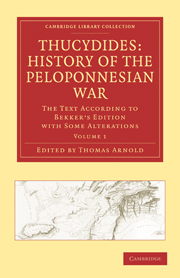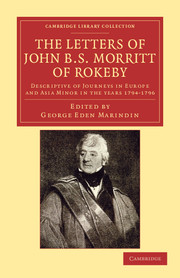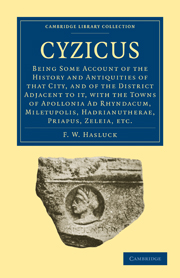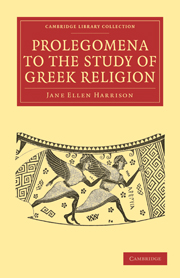Refine search
Actions for selected content:
23990 results in Ancient history
Abbreviations
-
- Book:
- Staying Roman
- Published online:
- 05 May 2012
- Print publication:
- 12 April 2012, pp xv-xviii
-
- Chapter
- Export citation
Chapter 2 - Flight and communications
-
- Book:
- Staying Roman
- Published online:
- 05 May 2012
- Print publication:
- 12 April 2012, pp 67-129
-
- Chapter
- Export citation
Tables
-
- Book:
- Staying Roman
- Published online:
- 05 May 2012
- Print publication:
- 12 April 2012, pp x-xi
-
- Chapter
- Export citation
Chapter 3 - The old ruling class under the Vandals
-
- Book:
- Staying Roman
- Published online:
- 05 May 2012
- Print publication:
- 12 April 2012, pp 130-195
-
- Chapter
- Export citation
Chapter 7 - Aftermath
-
- Book:
- Staying Roman
- Published online:
- 05 May 2012
- Print publication:
- 12 April 2012, pp 362-370
-
- Chapter
- Export citation
Maps
-
- Book:
- Staying Roman
- Published online:
- 05 May 2012
- Print publication:
- 12 April 2012, pp ix-ix
-
- Chapter
- Export citation
Chapter 4 - New Rome, new Romans
-
- Book:
- Staying Roman
- Published online:
- 05 May 2012
- Print publication:
- 12 April 2012, pp 196-251
-
- Chapter
- Export citation
Conclusions
-
- Book:
- Staying Roman
- Published online:
- 05 May 2012
- Print publication:
- 12 April 2012, pp 371-378
-
- Chapter
- Export citation
Introduction
-
- Book:
- Staying Roman
- Published online:
- 05 May 2012
- Print publication:
- 12 April 2012, pp 1-18
-
- Chapter
- Export citation
Bibliography
-
- Book:
- Staying Roman
- Published online:
- 05 May 2012
- Print publication:
- 12 April 2012, pp 379-419
-
- Chapter
- Export citation
Copyright page
-
- Book:
- Staying Roman
- Published online:
- 05 May 2012
- Print publication:
- 12 April 2012, pp iv-iv
-
- Chapter
- Export citation
Staying Roman - Half title page
-
- Book:
- Staying Roman
- Published online:
- 05 May 2012
- Print publication:
- 12 April 2012, pp i-i
-
- Chapter
- Export citation
Peasants, Citizens and Soldiers - Title page
-
-
- Book:
- Peasants, Citizens and Soldiers
- Published online:
- 05 October 2012
- Print publication:
- 05 April 2012, pp iii-iii
-
- Chapter
- Export citation
Note on abbreviations
-
- Book:
- Peasants, Citizens and Soldiers
- Published online:
- 05 October 2012
- Print publication:
- 05 April 2012, pp xiii-xiv
-
- Chapter
- Export citation
Maps
-
- Book:
- Peasants, Citizens and Soldiers
- Published online:
- 05 October 2012
- Print publication:
- 05 April 2012, pp xi-xii
-
- Chapter
- Export citation

Thucydides: History of the Peloponnesian War
- The Text According to Bekker's Edition with Some Alterations
-
- Published online:
- 05 April 2012
- Print publication:
- 02 October 2010
- First published in:
- 1830

The Letters of John B. S. Morritt of Rokeby
- Descriptive of Journeys in Europe and Asia Minor in the Years 1794–1796
-
- Published online:
- 05 April 2012
- Print publication:
- 29 December 2011
- First published in:
- 1914

Cyzicus
- Being Some Account of the History and Antiquities of that City, and of the District Adjacent to it, with the Towns of Apollonia Ad Rhyndacum, Miletupolis, Hadrianutherae, Priapus, Zeleia, etc.
-
- Published online:
- 05 April 2012
- Print publication:
- 02 November 2010
- First published in:
- 1910

Prolegomena to the Study of Greek Religion
-
- Published online:
- 05 April 2012
- Print publication:
- 26 August 2010
- First published in:
- 1903
Chapter 2 - Polybius’ manpower figures and the size of the Italian population on the eve of the Hannibalic War
-
- Book:
- Peasants, Citizens and Soldiers
- Published online:
- 05 October 2012
- Print publication:
- 05 April 2012, pp 40-78
-
- Chapter
- Export citation
